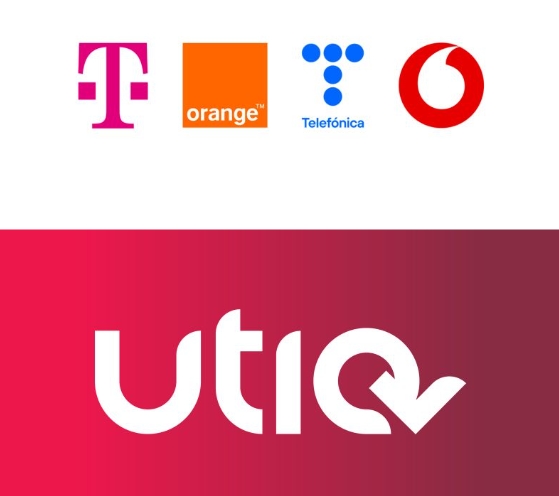Things are accelerating for Utiq, the joint venture created and owned equally by the four major European telecom operators, Orange, Deutsche Telecom, Telefónica and Vodafone. After the green light given by the European Commission last February, the AdTech announces this June 6 its commercial launch on the French market.
Previously known as TrustPid, the technology developed by Vodafone, Utiq aims to be a concerted response to the quasi-monopoly of GAFA on internet advertising. Taking the opposite view of digital giants who have based their power on the exploitation of personal data, the new company emphasizes the protection of privacy and the sovereignty of consumer data.
“Privacy by design”
The solution proposed by Utiq consists in generating “a pseudonymised and secure token”, linked to a user’s mobile or landline network subscription and subject to the latter’s explicit consent (opt-in). This unique and temporary digital code allows a brand or a press publisher to identify it on their websites or mobile applications “without revealing any directly identifiable personal data”.
According to the Service Mobiles site, the data collected by telecom operators will relate to location data, online behavior via the analysis of network traffic as well as information on the demographic and socio-economic status of the consumer in connection with contracts. subscribed.
Regaining control over their personal data, the consumer will have access to a portal dedicated to confidentiality allowing them, for each brand or publisher concerned, to give or withdraw their consent in one click, in accordance with the GDPR and the future European e-Privacy regulation.
The launch of Utiq also takes place in the context of the announced death of third-party cookies, scheduled by Google in 2024. These small files identify us on the sites we visit for statistical purposes or to send us advertising. targeted.
According to the JDN, a test campaign carried out by three German media groups, Axel Springer, RTL and IQ Digital, ended in mid-May without Utiq communicating on the consent rate obtained. With its headquarters based in Brussels, the joint venture’s CEO is Belgian entrepreneur Marc Bresseel, a former Microsoft executive and co-founder of Duval Union, of which he remains a shareholder.
Executive partnership with Adform
Sophie Poncin (photo) has been chosen to lead the French subsidiary. This digital marketing specialist began her career at France Télévisions in 1998 as commercial director of the advertising department. She then joined Google in 2006 before heading Orange Advertising France in 2008.

At the head of the incumbent operator’s advertising department, Sophie Poncin will pilot the operator identifier project in France, which has since been transformed into a European identifier. The leader also chaired the Syndicat des Régies Internet between 2015 and 2018, during which time she launched the Digital Ad Trust quality label.
For its launch, Utiq has entered into an exclusive partnership at European level with the advertising purchasing platform (DSP) Adform. This UK programmatic marketing automation specialist will use the platform as part of its ID Fusion third-party cookie replacement solution.
A simple collection transfer?
On its site, the EDRi network, says it is skeptical about the technology used by Utiq. Based on the public information collected, this collective of NGOs, experts and academics working to defend the rights of Internet users agrees that the token-based approach could limit tracking between the different sites visited which allow Google, Facebook and others spy on us everywhere we go online.
In contrast, the platform would do nothing to limit the collection of personal data or its use for micro-targeting advertisements carried out by the websites and apps themselves. In EDRi’s eyes, “TrustPid appears to be just another first-party cookie system that tricks advertisers, websites, and apps into tracking users’ activities and behavior themselves. people to micro-target them with ads. »
According to the collective, the system would not change the intrusiveness of the tracking activity. In an attempt to compete with Apple, Google and other online advertising platforms, telcos would simply hand off data collection to websites and app providers.
